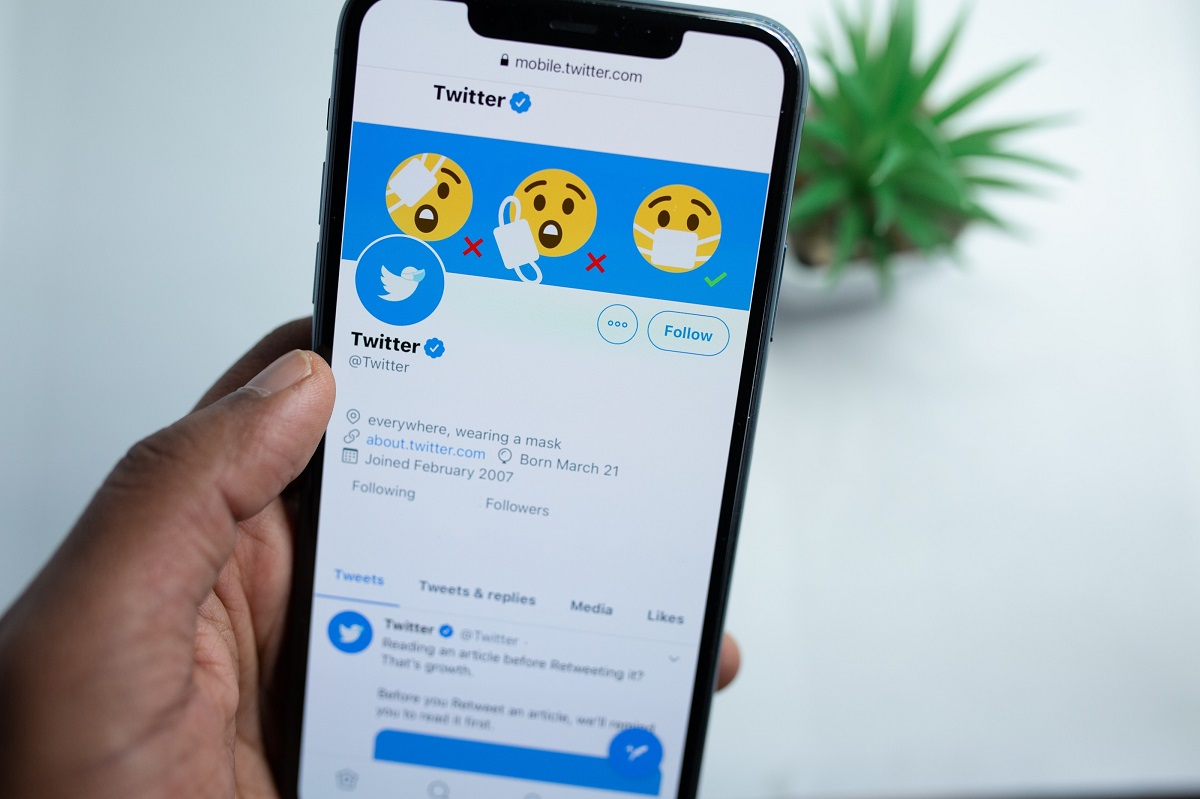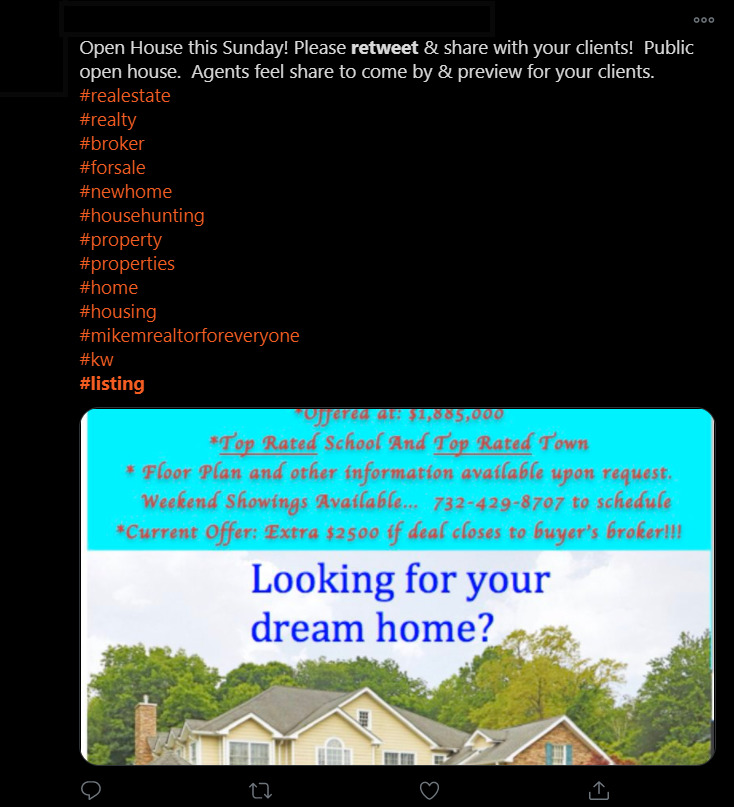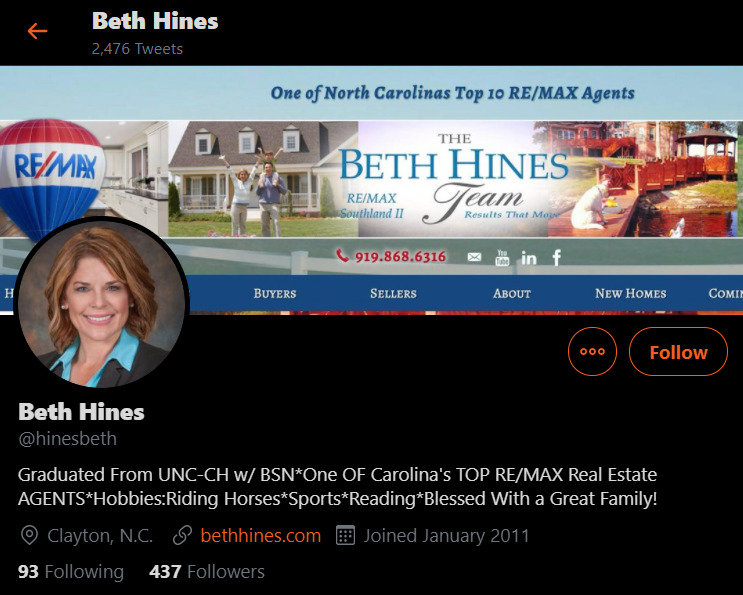Why Agents Fail At Twitter: Common Mistakes in Real Estate Marketing
The common mistakes real estate agents make on Twitter that totally blows ruin their efforts

Among all social media, Twitter gets particular attention for finding out what is going on in the world. Twitter’s great potential to be a first source of news has made it pretty popular among social media users. Businesses, therefore, consider Twitter one of the key social media platforms for their business. Real estate too can take advantage of Twitter. The problem though is that many agents do not know how to use it. In this article we will review some of the most common Twitter mistakes in real estate marketing.
Too Many Hashtags
Twitter is the birthplace of hashtags. Other platforms have taken up hashtags due to their success and practicality. And on other platforms, you will notice numerous hashtags assigned to posts. Instagram, in particular, is where users tend to go overboard with hashtags, despite the penalties they may get. There are some general rules for using hashtags across all social media but the issue with Twitter is that hashtags play an essential role on how your content is categorized and labelled. Many tweets get one or two hashtags normally. Beyond two hashtags, tweets seem like spam and is frowned upon by Twitter folks. Overuse of hashtags is a common Twitter mistake in real estate marketing, and generally.

Not Retweeting Other Real Estate Tweets
If you take a look at most real estate agents’ Twitter accounts, you will notice they have tweeted a lot, almost a couple of times a day, but they barely get any likes or retweets. Content spreads by being shared. Every person on Twitter has to play their own role in contributing to sharing content. When real estate agents do not realize this, they deprive themselves of their content being shared. When you do not share other people’s content, neither will they in return. Be a part of the Twitter community.

Not Enough Engagement
Many agents consider Twitter a window shop to showcase their services. They tweet a few times a day promoting listings and go away. There is no soul nor any human side to it. Where is the engagement in it? Do they expect Twitter folks to engage with listings? It is not going to happen. On Twitter people socialize be engaging with content. Creating content is one thing on Twitter, engaging with content is even more important. People love conversing on Twitter about different topics. Regardless of the topic get into conversations in your field and engage with others.
Giving Up Too Early
One of the reasons many real estate agents do not believe in Twitter is that they give up too early. Many expect short term results and once they have been Tweeting for a few weeks and get no significant engagement, they call Twitter ineffective and stop sharing. Dropping platform use too early is a very common mistake real estate agents may make with Twitter. Like most of the other platforms, Twitter needs to gain the trust of your audience. If you are new to the platform you can expect immediate results. You are just a new name. Give it at least six months and keep it steady.
Tweeting Too Often or Not Enough
Twitter is different, and you may find you are tweeting more often than posting on other social media. If you post more than one or two times on other social media like Instagram or Facebook, your audience might find it annoying. Twitter allows more frequent content share due to its initial one-line tweet format and current character limits. Although the tweets can include 280 characters and also links, images, and videos, a sort of precedent has been set. Therefore, an agent needs to post more often if they aim at highlighting their presence on Twitter and keep on top of their audience’s mind.
However, there is always a limit to what’s okay on social media. Despite higher tolerance for more frequent content sharing on Twitter, it does not mean you can’t go overboard. The idea is to stay on top of your audience’s mind, not to annoy them like a nuisance. See how other people are using Twitter and how often they tweet. People’s perception of how often seems okay might be different from a neighborhood to another.
Not Looking Professional
Twitter is a pretty casual platform where people hang out and converse. That’s what happens for typical and average people who are using Twitter for personal purposes. Once you use Twitter for anything more than personal, things change. The casual look will not work. Typical users tend to take up fun and causal usernames however you as an agent need to do the opposite. You need a username that represents you or your business formally. See how Beth Hines has done a great job at making a great profile:

Apart from the username, despite the casual nature of Twitter, you need to have professional photos and headshots for your profile and cover photo. The more you look professional on your profile the more likely you are to convince your new visitors to start following you and take you more seriously.
Not Following the Right People
When you are on Twitter your activity is quite visible to other users. When you retweet or like or comment on a tweet your followers might see that. The account you are interacting with might notify its followers on the interaction. Therefore, who you are following and interacting with becomes very important.
Find influential people in your niche. Those who have a huge audience base. Their audience can be your prospects. Identify these people in your farming area and your neighborhood. They should be influential to your audience. then interact with their tweets. Like and retweet them, or comment on them. do not go overboard retweeting everything. Eventually, their followers will take notice and might join your network.
Not Defining Niche Groups
Another mistake that applies not only to Twitter but also to all other social media and the marketing strategy in general is not defining your audience. The idea here is that when you target everyone you cannot send a universal message that appeals to everyone. Different age groups, with different needs, with different levels of familiarity with different subjects, will not respond the same to a message in the same way as the message has not been designed to fit them.
Find out what you are good at. Define the unique value you offer. See who can benefit more from your services and who is looking for them. Who has been using your services the most recently. Define them as your niche target. Tailor your messages to fit their needs and their preferences. Just think about it. Your tone would be different when targeting millennials who are going to buy their first home and baby boomers looking to invest more in real estate.
Using Business Account on For Personal Purposes Too
It seems obvious that you should not use personal accounts for business and vice versa, but it is becoming even more important on Twitter. Twitter is a pretty open platform. If you are using a personal account for business too, your followers may not appreciate seeing promotional tweets. And although we highly recommend that agents try and create a more personal connection with their audience by tweeting about their daily life, doing it too much does more harm than good.

If you create a business Twitter page for real estate then decide to use it for personal purposes and entertainment be aware that your audience sees your activity on Twitter. They can see what you like and comment on. Do not embarrass yourself by using your business account for personal uses.
Mentioning Your business Too Much
People are pretty intolerant on social media as they want relevant newsfeed for their social media platform. When there are some pages that pollute their newsfeed their first impulse reaction is to simply hit the “unfollow” button. One of the things that makes them do so is coming across as a pop-up ad. Whenever they see your name a promotional tweet comes up. Your tweets are basically pop-up ads. They are pretty annoying. Even if they need services or are interested in your services, seeing promotional messages is not interesting. Valuable informational tweets are what they need.

Going Old-School With Twitter
Twitter was initially a text-based social media platform and still used by many in this way. Many businesses and politicians, actors, influencers, etc. are still using text only in their tweets. However, real estate agents do not need to keep at this habit. Real estate is a visual business and to create value you need more than text. Whether you are offering valuable information, promoting your brand or listings, images and videos go a long way. A business page will inherently be less popular, attaching videos and photos increases your chances of getting attention.
Not Asking for Retweets
Retweets are what get your content to reach more people. Normally you would hope people retweet your content. However, there is something more you can do to get them to do it. Simply asking them. Agents may be uncomfortable asking their followers to retweet their posts, but they do not realize how effective this could be.
When sharing valuable content simply asking your audience to retweet it “if they find it interesting” goes a long way. The more people you reach the more followers you will get, and the more leads will come out of these people. You never know how many people out there are looking for the content you are sharing but are not aware of your existence.
roomvu Takes Care of Your Twitter Account for You
As a part of our social media calendar, we offer full automation of real estate agents’ Twitter account. The only thing agents need to do is to sign up, connect to their Twitter account, choose the content they like and we take care of the rest!

Twitter Common Mistakes for Real Estate: Final Words
The biggest mistake agents make with Twitter is that they treat the platform like others. Twitter is not Instagram or Facebook. It has its own rules and there are many common mistakes real estate agents may make on Twitter. Conversation and engagement are what matters to the audience. interaction and getting into discussions. Contributing to the topic and being consistently present on Twitter. Break any of these rules are you are doing it wrong. Have patience, keep at it, and trust the potential behind Twitter.





